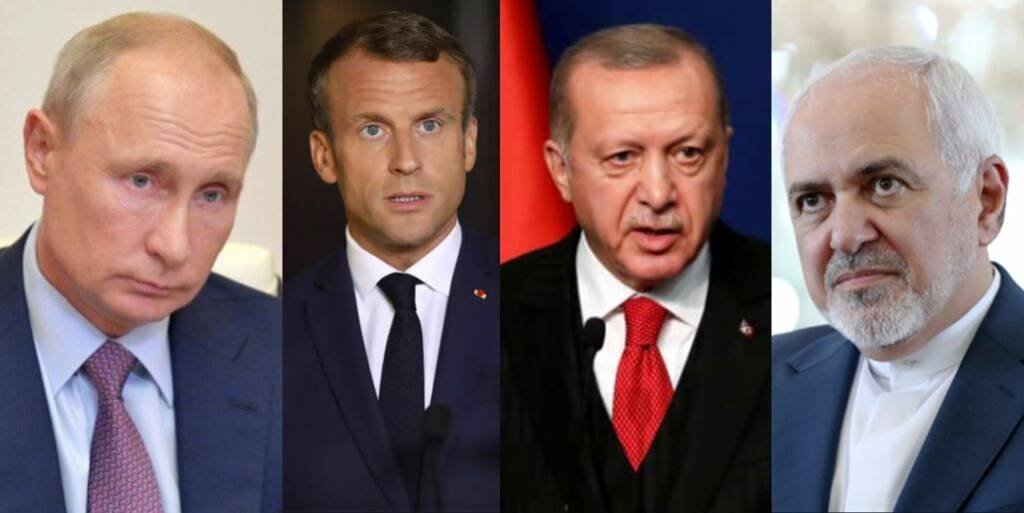Turkish President Erdogan is the definition of the current failed leader of the world, and this is not an overstatement. He started multiple fronts and birthed as well as sustained a multitude of conflicts, be it Syria, Lybia, Nagorno-Karabakh, Eastern Mediterranean, among others. With this, he had hoped to gain the leadership of the Islamic Ummah and to make Turkey the centre of Middle Eastern geopolitics. However, all these efforts have turned out to be a gargantuan failure.
With the Turkish economy already in free fall, these wasteful adventurisms have made the country all the more vulnerable, leading to increased fundamentalism and extremism (the support base of Erdogan). In addition to this, the foreign policy doctrine has been so self-destructive, that, it has galvanised all the countries, that are interested or party to the regions where Turkey is fomenting instability.
While the two countries, France and Russia are cooperating to tackle Erdogan’s belligerence, the Iranian military too may very well make some significant policy shifts against Turkey and its lackeys in the region. In a statement, Iranian Foreign Ministry Spokesperson Saeed Khatibzadeh said that Foreign Minister Zarif’s visit to Moscow and Baku on Monday and Tuesday next week aims at “talking to the regional parties.” He also added that the Southern Caucuses, Nagorno-Karabakh and bilateral relations in the region would be the talking points.
Read more: Russia makes a quiet entry into Eastern Europe with France’s tacit support to Putin.
The recent developments in the region are clearing the picture, and as the dust settles, the real loser seems to be Turkey. While the French and Russians have contested any possibility of allowing Turkey to send its troops as peacekeepers into the region of Nagorno-Karabakh, Russia has already stationed its peacekeeping forces in locations deep into the disputed areas of Nagorno-Karabakh between Armenia and Azerbaijan. With the tactical support of France and a silent acceptance from the whole of the European Union, Russia has been able to reclaim its influence in the region, and it had forced Baku to keep Turkey away from getting into the region. The galvanised support against Turkey has backing Russian actions in the region, to keep the Turkish influence as well as accompanying fundamentalism and extremism away from the Southern Caucuses.
The visit of the Iranian Foreign Minister to Moscow and Baku in the backdrop of the recently concluded peace deals between Armenia and Azerbaijan and administered by Russia should be seen in the same context. Iran had earlier tried together with Russia to help Armenia in its fight against Azerbaijan, but given a large Azeri-Iranian minority, it had its hands tied and could not do anything but observe things from the sidelines.
However, as the situation turned into Baku’s favour and the peace deal was signed, Armenia started plunging into social and political chaos. The Iranians may not have been able to help Armenia in its fight against Azerbaijan, but, they cannot let it plunge into chaos either. Iran has too much capital investment in Armenia, and it will be disastrous for Iran to see its investments fail while it is already suffering from the US sanctions.
Iran will likely take action on the Turkish proxies and other forces present in the southern Caucuses to make at least a symbolic gesture to signal its presence and influence in the region. The visit to Russia before other places in the region makes it all the more obvious that Iran will toe the line of Russia, support Moscow’s presence there and work together with it to maintain the regional power’s status quo, which nullify Turkish designs to gain influence in the region.
